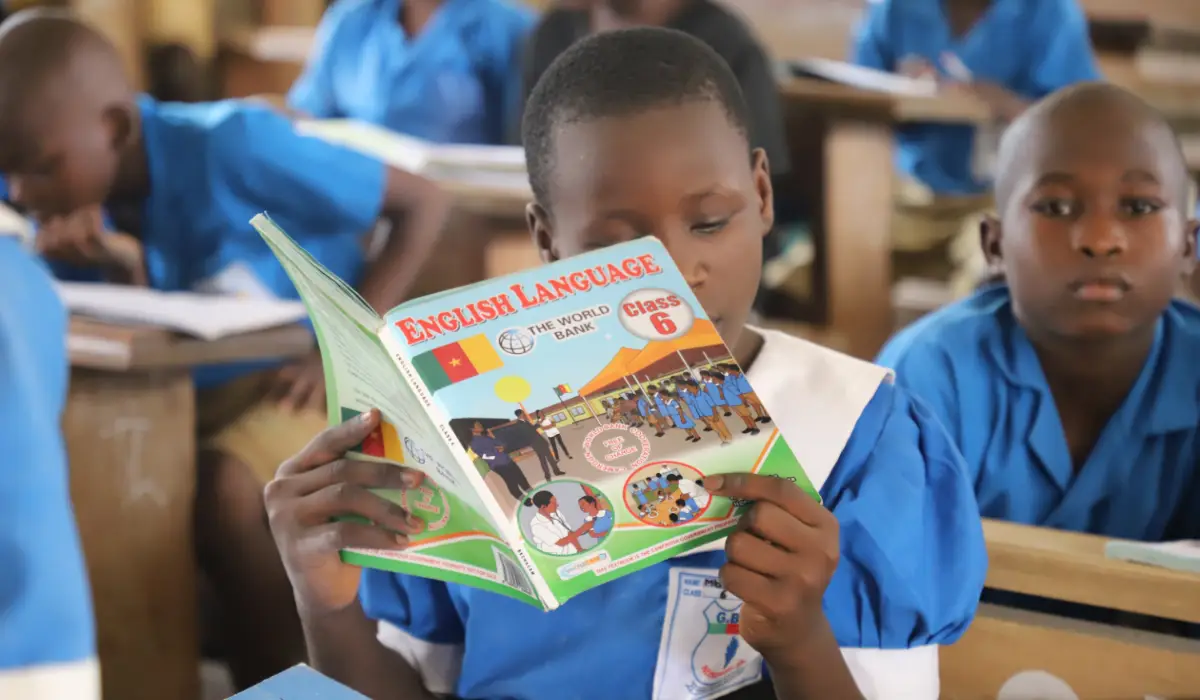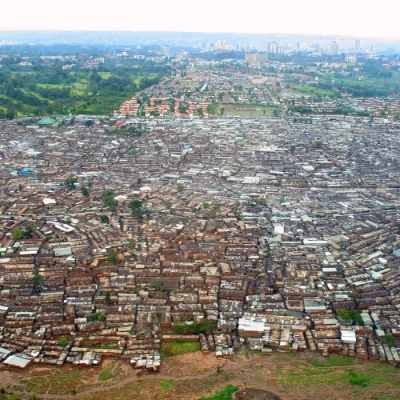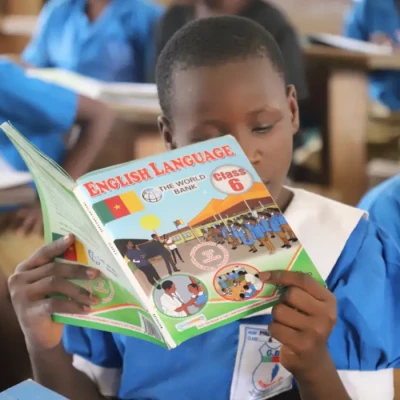The Northwest Region of Cameroon has been deeply affected by the ongoing Anglophone crisis, which has had a significant impact on education in the region. This study aims to assess the impact of the crisis on education in the region. The study adopted both qualitative and quantitative methods. Quantitative methods were used to analyse data on school enrolment, dropout rates and access to education. A total of 300 questionnaires were administered and 220 were returned. The findings of the study show that school enrolment has decreased significantly and dropout rates have increased due to the crisis. The study further found that the crisis has had a profoundly negative impact on education in the Northwest Region of Cameroon. The study, therefore, recommends actions to address the impact of the crisis and to ensure that children can access quality education.
In modern society, the majority of the population depends on the education of children as a source of future economic and social growth and increasing technological know-how. Above all, education is a basic human need that can ensure development. Studies have proven that aside from the fact that education is a basic human right for all children, it is also a powerful tool by which social and economic development can be attained and is a way of lifting children out of poverty. Education is a basic human right necessary for socially and economically marginalised children and adults to lift themselves out of poverty.
Human Rights Watch argues that education ‘can break generational cycles of poverty by enabling children to gain life skills and knowledge needed to cope with today’s challenges.’1Human Rights Watch (2016) The Education Deficit: Failures to Protect and Fulfill the Right to Education through Global Development Agendas, USA: Human Rights Watch, p. 2. Education is linked to the creation of concrete improvements in health and nutrition, improving children’s chances for survival. It is believed that education is a powerful protection factor as ‘children who are in school are less likely to come into conflict with the law’ and they are ‘much less vulnerable to rampant forms of child exploitation, including child labour, trafficking and recruitment into armed groups and forces.’2Ibid. Education is considered a right and not a privilege, as every child has the right to be educated. According to Norad, the right to education is a fundamental human right. Every individual, irrespective of race, gender, nationality, ethnic or social origin, religion or political preferences, age or disability, is entitled to a free elementary education.3Norad (n.d.) ‘The right to education’, Available at: https://www.norad.no/en/front/thematic-areas/education/right-to-education.
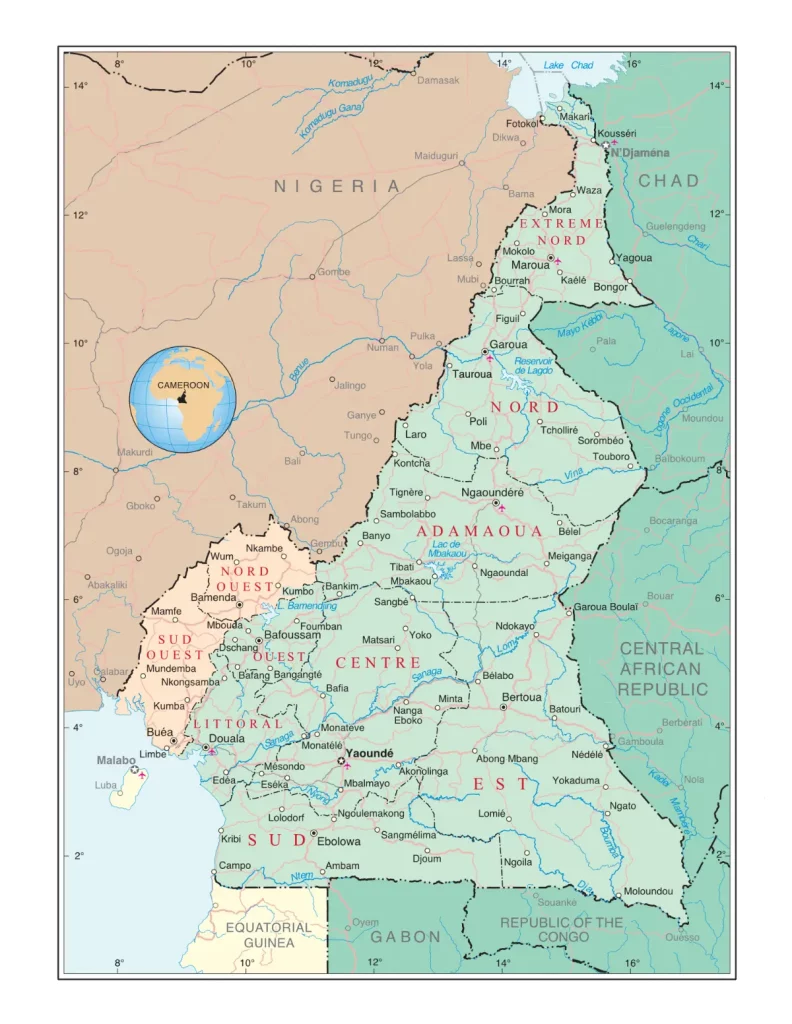
Although the Republic of Cameroon has a rich geography and cultural diversity, it has many challenges, including growing inequality and economic weaknesses, which create problems relating to education. The crisis in the Northwest Region (NWR) is not an exception. Even though the crisis exists, many people still find it difficult to define and identify its root causes. Ngoh writes: ‘Although it is generally agreed that there is an Anglophone problem in Cameroon, it is not easy to define it.’4Ngoh, V. J. (1996) History of Cameroon since 1800, Limbe, Cameroon: Presbook, p. 315. The problem of the crisis revolves around the cultural identity of a minority people in a union whose first rights are for equal recognition to exist in Cameroon. This has led to Anglophones forcefully claiming equal rights as citizens in Cameroon with Francophones, who are treated better, according to the Anglophones. ‘Anglophones feel and claim the rights to exist as citizens of Cameroon and to be treated equally with their other partner the Francophones,’ according to Ngoh.5Ibid. It was this manifestation that sparked inter-tribal wars, which are common in Cameroon’s history, such as the conflicts in 1990, 2008 and 2016. These conflicts occurred because the government failed to address the immediate issues, which often led to other issues arising.
The violation of children’s right to education has negatively impacted society, as there is a high crime rate, increased illiteracy rate, and decrease in technological competency. As a result, there are calls for the government to see to it that children’s right to education is respected, as this will boost economic and social growth and development in the NWR. As a means of achieving human rights, the United Nations created a comprehensive body of human rights law in a universal and international protected code, to which all nations can subscribe.
In Cameroon, in as much as the government strives to see to it that the children of the NWR are educated, since 2016, the doors of most schools remain closed, as part of the boycott against education. Most schools are unable to reopen due to threats of violent attacks. An ACAPS report states that: ‘Separatist armed groups and unknown assailants have damaged, destroyed, or burnt down at least 74 schools in the NWSW [Northwest and Southwest] regions since the beginning of the conflict in June 2019.’6ReliefWeb (2021) ‘ACAPS Thematic Report: Cameroon – The education crisis in the Northwest and Southwest regions’, 19 February, p. 1. In Nchum, Bafut, in the NWR, at least two incidents occurred from January to September 2020, one involving military occupation and the other the alleged burning and damaging of two non-operational primary school buildings. The schools were non-operational because of COVID-19 and the socio-political crisis.7Ibid.
Armed groups have deliberately prevented children from attending school in the NWR, as they believe this might assist them in attaining their goals in the region. Some separatist armed groups are protesting against the Government of Cameroon (GoC) education system by forcing schools to close and attacking students, teachers and educational facilities. In 2017, the separatists imposed a boycott on formal education that uses the GoC’s curriculum, and most schools in the NWSW regions are closed for the fourth consecutive year. Targeting schools thus has both a political and economic dimension to it, while not forgetting the social aspect of education.8Ibid.
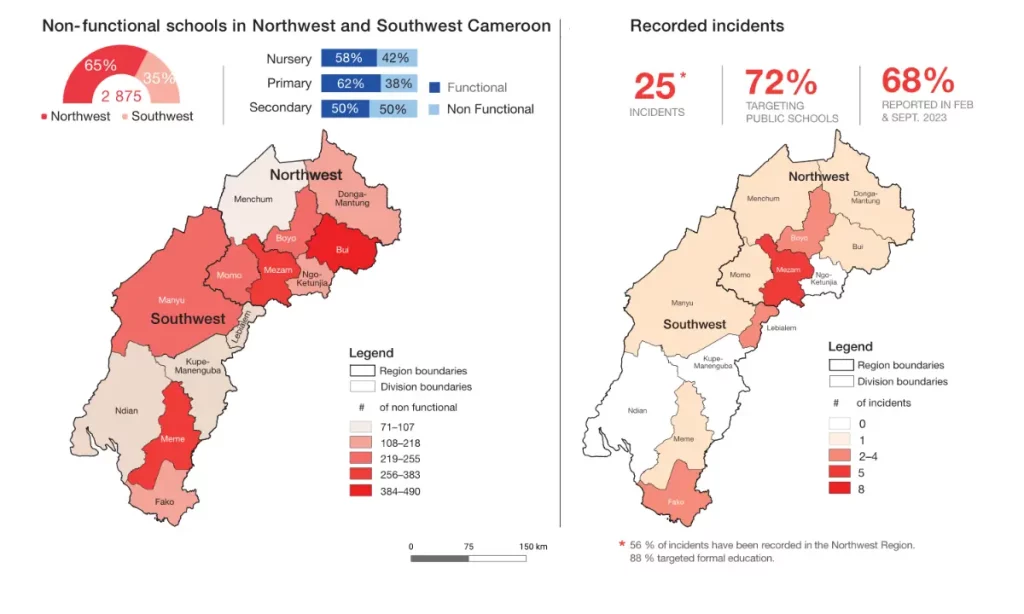
The prevalence of the Anglophone crisis has given room for the violation of the right to education in all communities in the NWR. This has led to mounting pressure from the government, non-government organisations and others involved in the educational sector, such as councils and quarter-heads (local leaders), to see to it that the rights of children to education are no longer violated, despite the risks that might be involved in opening schools. This has also brought risks for the students, as many have been beaten, stripped naked, abducted, harassed and even killed because they attend school. ‘This violence, stress and fear can cause both visible and invisible health and mental health effects in the long and short term,’ accord to the ACAPS Report.9Human Rights Watch (2016) The Education Deficit: Failures to Protect and Fulfill the Right to Education through Global Development Agendas, USA: Human Rights Watch, p. 1.
This has also brought frustration and psychological trauma to children in the NWR. Children who even secretly attend schools cannot concentrate due to the fear of being abducted or killed. Often, students and teachers are unable to complete a full day or exhaust the required school hours due to attacks, which causes them to flee or seek refuge elsewhere. Parents at home can become targets for having sent their children to school. Parents no longer feel that they can rest or carry out other activities peacefully while their children are in school. Attacks by armed separatist groups on students, teachers and schools in the NWR have had a devastating impact on children’s right to education. As a result, children boycott school, while others prefer to seek employment as a quick source of income, which has resulted in children in the NWR engaging in cyber theft and armed robbery. There has been an increased rate of drug use among children. In addition, many girls have become pregnant at a young age, which has, in turn, led to an increase in deaths during childbirth and due to unsafe abortions.
According to UNICEF, ‘Fear of violence has kept parents from sending their children to school and teachers and staff from reporting to work’ in Cameroon.10UNICEF (2019) ‘More than 855,000 children remain out of school in North-West and South-West Cameroon’, press release, 5 November. Due to the crisis and since children do not attend school; the rate of child displacement to other areas has also increased. This comes at an additional cost to parents, driving up their expenses, as their children now study in different regions. If this issue of the violation of the right to education is not overcome, it could affect not just the people who are uneducated, but society as a whole.11ReliefWeb (2021) ‘ACAPS Thematic Report’, op. cit. Children could face consequences, such as shorter life spans, poor health conditions and a decrease in their living standards, while in the economy, poor levels of education will see a decrease in economic and social growth in the NWR in the years ahead. Thus, it is important to ensure that the right of a child to education is respected and carried out in NWR through campaigns, reopening of schools and sensitisation.
The violation of children’s right to education in the NWR has brought forth a decreased rate of economic and social development in the NWR. Even though some communities have opened community schools as a means of reducing the illiteracy rate of children, other communities have not. Opening community schools comes with its own problems, as many do not have well-trained teachers, favourable environments and equipment, decreasing the value of the education that the children receive.

Discussion
According to UNICEF, more than 6 000 schools have been forced to close due to the crisis, affecting the education of over 800 000 children, and in the NWR alone, over 4 000 schools have been closed, impacting approximately 500 000 children. 12UNICEF (2021) ‘Cameroon Humanitarian Situation Report’.The crisis has led to significant learning losses, with many children missing months or even years of schooling. According to a study by Save the Children, children in the region have lost an average of three-and-a-half years of schooling due to the crisis.13Save the Children (2020) ‘Out of School and Overlooked: A Crisis in Cameroon Anglophone Regions’, Available at https://reliefweb.int/report/cameroon/baseline-research-education-crisis-anglophone-regions-cameroon. It has further led to a disproportionate impact on girls’ education, with girls being more likely to drop out of school due to safety concerns and early marriage. According to UNICEF, the crisis has led to a 45% increase in the number of teenage pregnancies in the region.14UNICEF (2019) ‘More than 855,000 children remain out of school’, op. cit. In response to this, the Cameroonian government has implemented various policy responses to address the impact of the crisis on education, including the provision of alternative learning spaces, the distribution of learning materials, and the training of teachers in psychosocial support. However, these efforts have been hampered by the ongoing violence and instability in the region.
The crisis has led to a high level of teacher absenteeism, with many teachers fleeing the region due to safety concerns. According to a report by the World Bank, teacher absenteeism rates in the NWR and Southwest Region (SWR) are as high as 50%.15World Bank (2020) ‘Education in Crisis: Early Lessons from Cameroon’s Anglophone Regions available at https://documents1.worldbank.org/curated/en/913591595210515945/pdf/Cameroon-Secondary-Education-and-Skills-Development-Project.pdf ’. In the NWR alone, approximately 70% of teachers have fled the region due to the crisis. Armed groups have targeted schools and education personnel, leading to a climate of fear and insecurity in the region. According to a report by Human Rights Watch, armed groups have attacked at least 75 schools and abducted over 150 education personnel since the crisis began.16Human Rights Watch (2021) ‘Cameroon: Abuses by Separatist Groups in Anglophone Regions Available at https: //www.hrw.org/news/2022/06/27/cameroon-separatist-abuses-anglophone-regions’.
The risk of violence against children, including sexual and gender-based violence, has increased in the NWR as the conflict has escalated. Education in these regions is treacherous for children. Both children attending school and children out of school face security threats. Children attending school have an increased risk of experiencing attacks, harassment and kidnapping, or being killed, as they are not respecting the boycott of formal education. ACAPS reports children who are out of school face a different set of risks including sexual violence, child labour, child marriage, forced recruitment, and arbitrary detainment and arrest. Protection is a priority needed for children both in and out of school.17ReliefWeb (2021) ‘ACAPS Thematic Report’, op. cit. p. 6. Exposure to violence and abuse inside and outside of school could lead to long-term impacts on mental wellbeing, including symptoms of trauma.
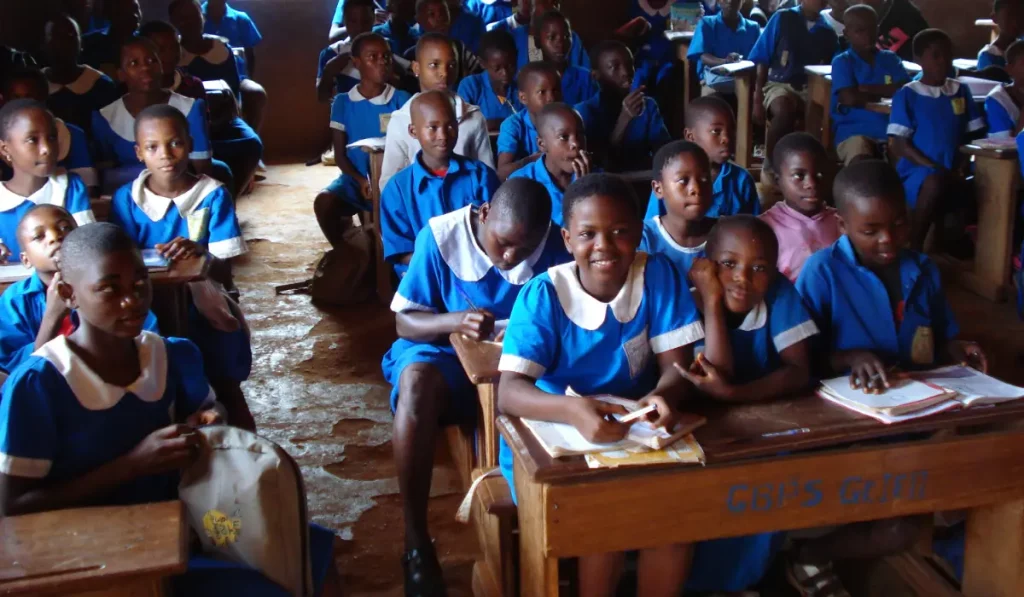
Without functioning schools, many children do not have access to secure learning environments that provide them not only with a space to learn, but also protection, access to basic health services, and a school meal programme. ACAPS further reports, pregnancy rates among teenagers have increased during the crisis, and absences from school have been identified as the primary driver. As a result of early pregnancies, some girls resort to unsafe abortion practices. Children who are not in school face arbitrary arrests and detainment – they are assumed to be members of separatist armed groups by the security forces. This is a concern that is faced by children in the NW region in particular.
Child labour is directly linked to access to education in Cameroon and both factors influence each other. In the NWR, ‘child labour is an immediate risk resulting from absences from school.’ The most recent statistics available indicates that 39% of Cameroonian children between the ages of five and 17 are employed as child labourers (40% of Cameroonian males and 38% of Cameroonian girls).18UNICEF (2019) ‘More than 855,000 children remain out of school in North-West and South-West Cameroon’, press release, 5 November. The primary means by which children and teenagers provide for their families is through household employment or agricultural work. Child labour has been documented, despite the Northwest region having little detailed data. Girls who have been separated from their families in these regions—sometimes due to displacement—are more likely to work as domestic helpers, tailors, or salespeople.19(IASC, 2019). The education crisis in the Northwest and Southwest regions, available at https://www.acaps.org/en/countries/archives/detail/cameroon-education-crisis-in-north-west-and-south-west-regions According to ID4D, children are more likely to take up harmful coping mechanisms like prostitution, theft, kidnapping, and cross-border trading in order to support themselves.20ID4D (2020), Data on gender equality in Cameroon, Available at: https///C:/Users/koko/Downloads/data_on gender equality in cameroon hno 2020-17
Extended and protracted psychosocial distress and mental health problems might result from the Anglophone crisis, prolonged absences from school, and family financial strains. There are a number of long-term effects on children’s psychological development that can arise from severe and ongoing violence. Such encounters may lead to long-term problems with one’s physical and emotional well-being.21War Child (2018). The effects of being a child soldier can last a lifetime, available at: https://www.warchild.org.uk/news/effects-being-child-soldier-can-last-lifetime Children in the North West Region are temporarily dealing with terrible experiences due to the violence. There has been a reported rise in teenage drug use and suicide. Psychosocial support for school-age children and a safe and secure learning environment are required to prevent long-term effects.22Op. cit. 23Protection Cluster Strategy (2019). Protection Cluster Strategy Northwest and Southwest of Cameroon. Available at https://data.unhcr.org/august2019. According to OECD research, those with higher levels of education generally have higher rates of wellbeing, healthy behaviours, and general health.24OECD. (2006). Education at a Glance: OECD Indicators. Available at https://doi.org/10.1787/19991487 This could be the case due to the fact that higher education frequently results in a greater range of employment options and higher pay.
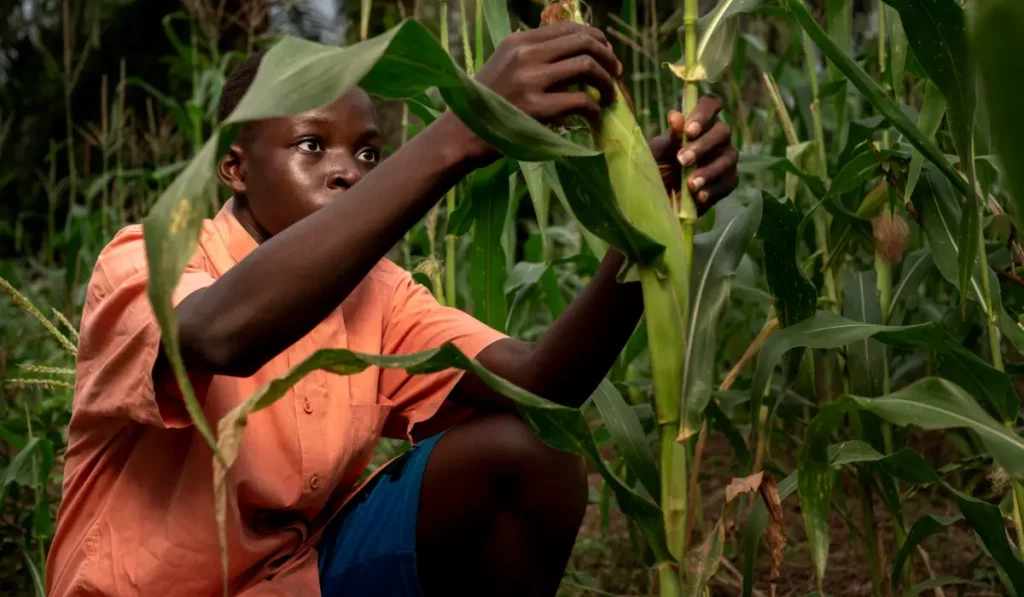
Young people who enlist in the military often miss school, which affects their literacy, reduces their employment prospects in the future, and puts them in unstable financial situations.25Blattman, C (2006). “The consequences of child soldiering.” HiCN Working Papers 22, Households in Conflict Networks. 26Cameroon Education Cluster Strategy. (2020). Northwest & Southwest regions of Cameroon 2023–2025. Children who leave the military or other groups and are unable to successfully reintegrate into their communities on an economic and social level run a greater risk of being recruited again, which would feed the cycle of violence and poverty. Children who were formerly involved in the armed forces may also be rejected by their own families or communities. Armed groups, and young women who have given birth to children with troops, are stigmatised and marginalised.
Having access to education is associated with a number of positive economic outcomes, such as increased lifetime wages and employment opportunities.27World Bank (2018). Poverty and shared prosperity 2018: piecing together poverty puzzle, Washington DC: world Bank. Significant educational declines are associated with reduced lifetime productivity and earnings, as well as fewer employment opportunities for students. Intergenerational poverty and inequality may result from this, particularly for children who are already at risk of financial hardship. Prolonged school closures may cause students to lag behind in their studies, which could result in disparities between classmates both in the classroom and later on in life. The consequences of school closures primarily affect students from underprivileged families.28UN. (2020a). Distance Learning Solutions. UNESCO. Available at https://en.unesco.org/covid19/educationresponse/solutions 29OECD. (2018). Education at a Glance: OECD Indicators. Available at https://doi.org/10.1787/eag-2018-eng. This could result in difficulties for the growth and productivity of society as a whole.30EUROPEAN COMMISSION (2020) A strategy for smart, sustainable and inclusive growth, https://ec.europa.eu/eu 2020 Lack of exposure to schooling in one’s mother tongue can also result in exclusion from school, which can impede prospects for advancement in the economy.31Their world. (2017). When we teach children from birth in their first language, it provides them the best chances of educational success.” available at https://theirworld.org/news/cameroon-youth-ambassador-on-teachers-strike-over-language
Children who were raised in the Anglophone system and later moved to the Francophone system due to migration, displacement, or the pursuit of higher education, which is primarily taught in French in Cameroon, often struggle with language. Children who learn a second language must study twice as much as their Francophone peers, which can be time-consuming and negatively impact their academic success. In order to advance through their courses, some students hire translators to translate their course materials. According to a Human Rights Watch report on the Anglophone crisis, criminal attacks do not just cause immediate physical and psychological harm, they also jeopardise the future of tens of thousands of students and attacks by armed separatist groups on students, teachers, and schools in Cameroon’s Anglophone regions have had a devastating impact on children’s right to education.
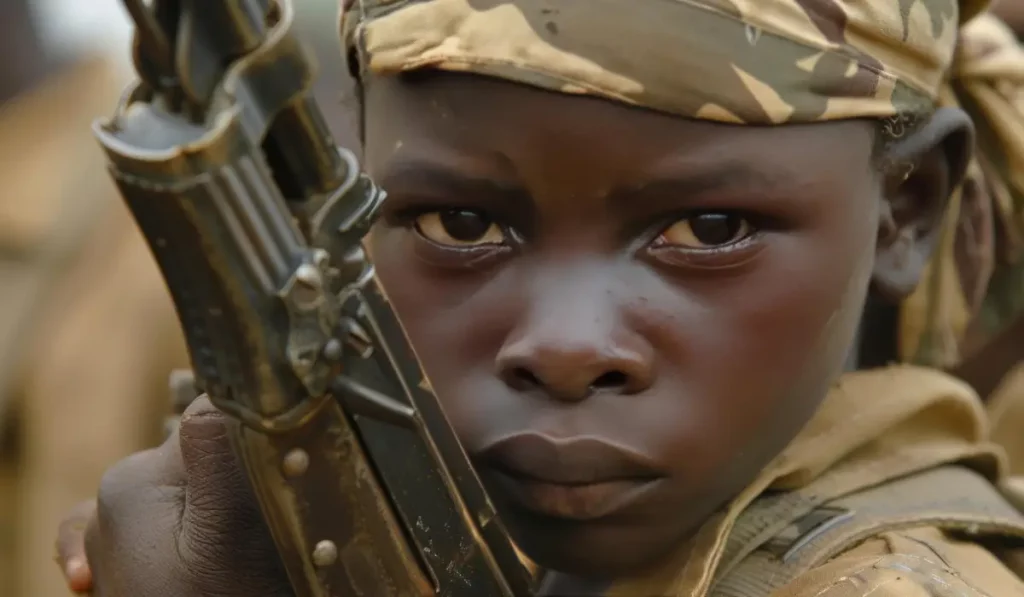
Recommendations
Emancipation should be done so as to change the mind set of the inhabitants of the NWR and also the separatist fighters. This is because education is a basic right and necessity of a child. It is needed for development, as these children are the leaders of tomorrow. Support from educated elites, quarter-heads and government officials of all communities in the NWR is needed through sensitisation about the importance of education and the disadvantages of child labour.32Stohl, M., Carleton, D., Lopez, G., and Samuels, S. (1986) ‘State violation of human rights: issues and problems of measurement’, Human Rights Quarterly, 8(4), 592–606. Many children have dropped out of school because they have seen greater and easier means of making money. Thus, there should be donations of teaching materials and games, scholarships made available, and reconstruction of better and modern school facilities to attract the children of the NWR back to school. This act has greatly been supported by the Government of Cameroon, which has passed a decree that no girl child should be left out of school because she is pregnant or is a nursing mother. By so doing, this would help girl children who have given birth or are facing early pregnancies to attend school without any problems.
Bamnjo Herman Yenika is from the University of Bamenda, Faculty of Law and Political Science, Department of Political Science.

